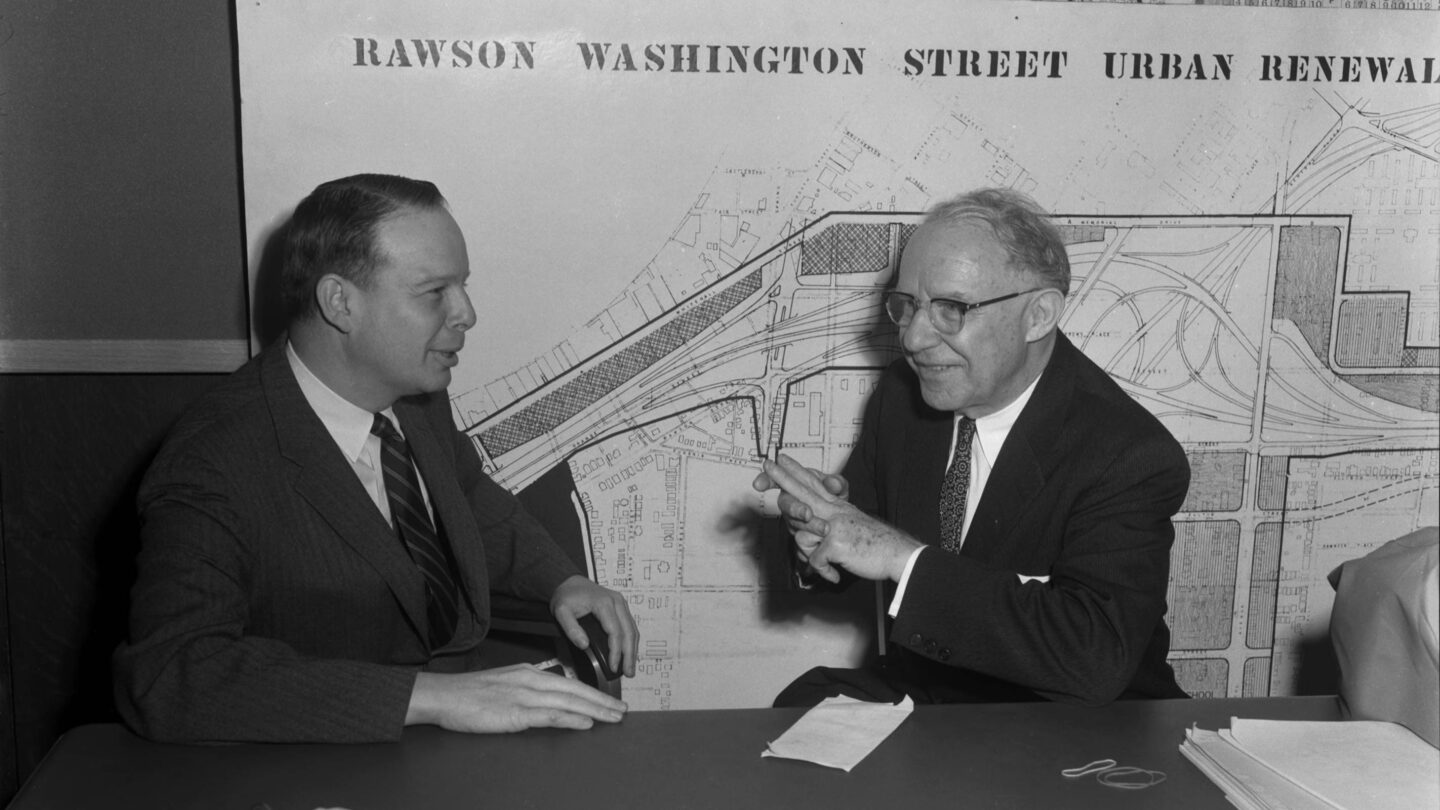Remembering Atlanta Architect and Civil Rights Supporter Cecil Alexander

One of Atlanta’s community giants has passed away.
Architect Cecil Alexander died Tuesday, July 30th.
Alexander helped design the Coca-Cola headquarters and the old Atlanta-Fulton County Stadium, among other buildings.
He also proposed a new state flag, to replace the one with the Confederate battle cross.
WABE’s Rose Scott reports, Alexander was one of the leaders in building lines of communication between the city’s white and African-American communities during the ‘50s and ‘60s.
“The ultimate measure of a man is not where he stands in moments of comfort and convenience, but where he stands at times of challenge and controversy.”
That’s from Dr. Martin Luther King, Jr.
During a time when race relations were strained and ideas about segregation still governed Atlanta, Wright Mitchell says Cecil Alexander stood firm in his own belief.
And that was illustrated when it came to Dr. King.
“After he [King] won the Nobel Peace Prize, Cecil organized this lunch and tried to solicit his friends and colleagues in Atlanta, his white friends and colleagues, to come to the lunch and he said not many of them turned out unfortunately and that some of them wouldn’t speak to him for a while afterwards.”
Wright Mitchell is the founder and president of the Buckhead Heritage Society.
He says his friend was a man of principle and was often called on by then Atlanta Mayor Ivan Allen Jr. to help bond the city’s racial gap.
“He very much was Mayor’s Allen, kind of, point person in fighting racism and trying to bring a little more equality to blacks in the city of Atlanta which at the time was not a probably a very popular thing for an Atlanta architect.”
That wasn’t unusual says Doug Alexander.
He says his father’s contributions go beyond brick and mortar.
“One of the things I have run into for so long is people who, oh you’re Cecil Alexander’s son, your father was so important to me for this or for that or he helped with this or he introduced to those people and it changed everything. I mean dad was just out there helping.”
While it may have been simply helping, Doug says it is part of his father’s legacy.
He recalls a car conversation with his father on the topic.
“Dad, it’s not the building’s you design or [have a] hand in building, it’s the people whose lives you touched, that’s your legacy.”
Doug says his father quipped, “I wish I could believe that.”
But later in life, Doug says he thinks his father came to realize it was true.
Cecil Alexander, a World War II veteran loved to fly and sail.
Despite a body that was tiring and ailing, Doug Alexander says his father’s mind remained sharp.
They spoke about a week ago and Doug says his passing is a shock.
Cecil Alexander was 95 years old.
9(MDAxODM0MDY4MDEyMTY4NDA3MzI3YjkzMw004))







